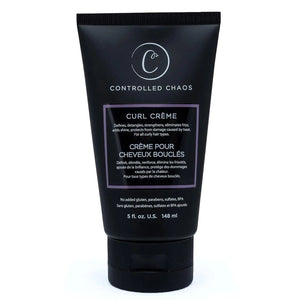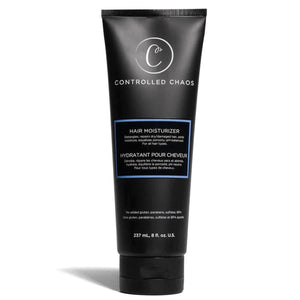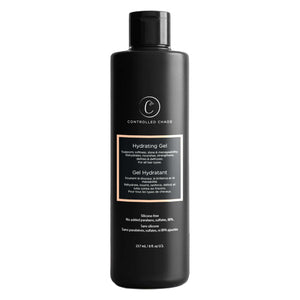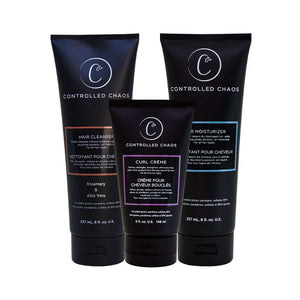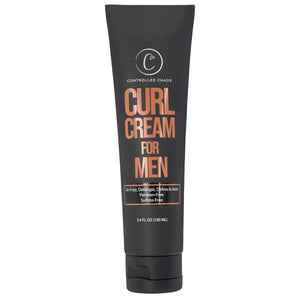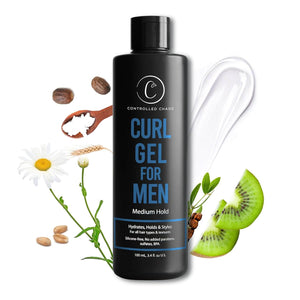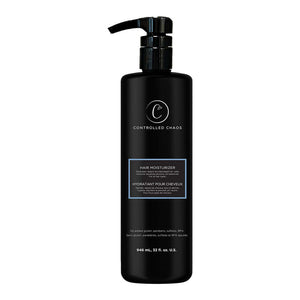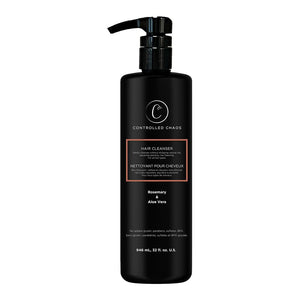

Curly hair is naturally beautiful but often requires a bit more care to maintain its health, bounce, and definition. One essential step in any curly hair care routine is using a clean conditioner—a product formulated without harsh ingredients that strip the hair of moisture or damage its natural texture. But what exactly does "clean" mean in hair care, and why is it essential for curls?
In this blog, we’ll discuss clean conditioner for curly hair. Additionally, we will explore why it’s beneficial for curly hair and how to select the best one for your specific hair type.
What Is a Clean Conditioner?
A clean conditioner is typically free from harmful or questionable ingredients, such as sulfates, silicones, parabens, phthalates, synthetic dyes, and artificial fragrances. Instead, it contains nourishing, plant-based, or naturally derived ingredients that hydrate, detangle, and protect your hair without causing buildup or irritation.
In the clean beauty industry, the focus is on transparency, safety, and sustainability. Clean conditioners not only benefit your hair but are often better for your scalp, overall health, and the environment.
Why Curly Hair Needs a Clean Conditioner?
Curly hair is more porous and prone to dryness than straight hair. It’s also more fragile and susceptible to breakage. Here’s why using a clean conditioner is so important:
-
Maintains Moisture Balance: Clean conditioners help restore and maintain hydration without coating the hair in heavy, synthetic ingredients.
-
Prevents Product Buildup: Many conventional conditioners use silicones and waxes that weigh curls down. Clean formulas are lighter and easier to rinse out.
-
Supports Scalp Health: A healthy scalp is key to healthy curls. Clean products reduce the risk of irritation and clogged follicles.
-
Enhances Curl Definition: Clean conditioners are specifically designed to nourish and enhance the natural curl pattern, leaving curls soft and defined.
-
Safe for Long-Term Use: Without harsh chemicals, clean conditioners are gentler for regular, long-term use—essential if you’re following a curly hair method or low-poo routine.
Key Ingredients to Look For
When shopping for a sulfate-free conditioner for curly hair, look for nourishing and hydrating ingredients that benefit textured strands. Some examples include:
-
Aloe Vera: Soothes the scalp and hydrates hair without leaving it feeling heavy.
-
Shea Butter or Cocoa Butter: Provides deep moisture and a soft, velvety texture.
-
Coconut, Argan, or Jojoba Oil: Natural oils that penetrate the hair shaft and reduce frizz.
-
Marshmallow Root or Slippery Elm: Natural detanglers that ease combing and minimize breakage.
-
Glycerin (from plants): Draws moisture into the hair, but be cautious in dry climates.
Also, check the labels to ensure the product is free from sulfates, drying alcohols, and synthetic fragrances.
How to Use a Clean Conditioner on Curly Hair?
-
Apply Generously: After cleansing your hair, apply the conditioner from mid-length to ends, then work it upward if needed.
-
Detangle with Fingers or a Wide-Tooth Comb: Start detangling while the conditioner is still in your hair to minimize breakage.
-
Let It Sit: Leave it on for at least 3–5 minutes to allow the ingredients to penetrate the skin.
-
Rinse Thoroughly (or Leave a Little In): Depending on your curl type, you may thoroughly rinse or leave a small amount in for extra moisture.
How to Choose the Right Clean Conditioner for Your Curl Type?
Not all curls are the same—what works for loose waves may not be ideal for tight coils. Understanding your curl type can help you select the best natural curly hair care products for your hair's unique needs.
1. Wavy Hair (Type 2)
Wavy hair tends to be less dry than other curl types, so a lightweight, clean conditioner is ideal. Look for formulas that hydrate without adding too much weight. Ingredients like aloe vera, coconut water, and lightweight oils (like sunflower seed oil) are great you'd like
2. Curly Hair (Type 3)
Curly hair is more prone to frizz and dryness. A ricas well.conditioner with deep-moisturizing properties—such as shea butter, avocado oil, or glycerin—will help enhance curl definition and lock in moisture.
3. Coily/Kinky Hair (Type 4)
This hair type is the most fragile and driest of all curl patterns. It benefits from ultra-moisturizing clean conditioners packed with emollients like castor oil, mango butter, and oat extract. A thick, creamy formula that can double as a leave-in is often ideal.
Clean Conditioner Myths
While clean beauty is gaining popularity, many misconceptions persist, particularly regarding curly hair care. Let’s bust a few myths:
-
Myth 1: Clean conditioners don’t moisturize well.
In truth, many clean conditioners use plant oils and butters that are just as, if not more, moisturizing than synthetic alternatives. -
Myth 2: You need silicones to fight frizz.
Silicones coat the hair but don’t truly hydrate it. Clean conditioners combat frizz by nourishing curls from the inside out, making them more resilient to humidity and breakage. -
Myth 3: Clean products are only for sensitive skin.
While great for sensitive scalps, clean conditioners offer benefits like healthier hair growth and improved curl definition for everyone.
Tips for a Clean Conditioner Routine
If you’re switching from conventional to clean products, your hair might go through a brief adjustment phase. Here’s how to make the transition smoother:
-
Clarify First: Use a gentle clarifying shampoo (ideally clean as well) to remove buildup from previous products.
-
Be Patient: Give your hair a few weeks to adapt to your new conditioner. It may take time to see full results.
-
Stick to a Routine: Consistency is key when working with clean and natural products, especially for curls.
-
Don’t Overdo It: Avoid layering too many products. Let your clean conditioner shine by keeping your routine simple and effective.
Incorporating Clean Hair Care
Switching to a clean conditioner isn’t just about what goes on your hair—it’s about embracing a more holistic, health-providing approach to caring. Here are some w, to integrate this philosophy into your lifestyle:
1. Read Labels Carefully
Start becoming familiar with ingredient lists. Clean beauty is all about transparency, so steer clear of products with lengthy lists of hard-to-pronounce chemicals. Look for plant-based oils, botanical extracts, and natural humectants.
2. Simplify Your Routine
You don’t need a dozen products to care for your curls. A solid clean conditioner, paired with a sulfate-free shampoo and an occasional deep treatment, often does the trick. Fewer, high-quality products lead to healthier curls and less clutter.
3. Air Drying and Low-Heat Styling
Clean hair care often pairs best with styling. Minimize heat exposure, use microfiber towels, and allow curls to air dry, helping to prevent damage and preserve moisture whenever possible.
4. Protect Your Hair Overnight
Use a silk or satin pillowcase, or wrap your curls in a soft scarf before bed. This reduces friction, preserves curl definition, and supports the moisture-retaining benefits of your clean conditioner.
Final Takeaway:
Curly hair is stunning, expressive, and worthy of the best care, starting with the conditioner you use. A clean conditioner for curly hair respects your natural texture, supports your scalp’s health, and works in harmony.
So, whether you're just starting your clean hair care journey or looking to refine your routine, choosing a clean conditioner is a decisive and simple step. This will help in getting resilient curls.
Faqs
What is a clean conditioner for curly hair?
A good conditioner for curly hair is a product formulated without harsh chemicals, including sulfates, parabens, silicones, and synthetic fragrances. It uses gentle, nourishing ingredients—often plant-based—to hydrate and define curls while supporting overall scalp and hair health.
Are natural conditioners better for curly hair?
Yes, natural conditioners are often better for curly hair because they provide moisture and nutrients without weighing curls down or causing buildup. Ingredients such as natural oils, butters, and botanical extracts help enhance curl definition and maintain softness in a gentle, non-damaging manner.

